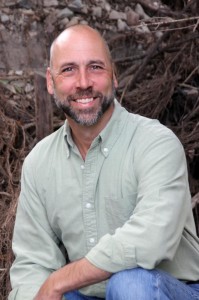In spite of the fact that we live in a world dominated by the extreme credentialism,  government regulation and oversight, and aristocratic hierarchy prophesied by Alexis de Tocqueville, Americans are still capable of pushing through the social and political miasma that bogs down our society and shine their individual brilliance on a nearly comatose nation.
government regulation and oversight, and aristocratic hierarchy prophesied by Alexis de Tocqueville, Americans are still capable of pushing through the social and political miasma that bogs down our society and shine their individual brilliance on a nearly comatose nation.
I have faith in the Divinity of our origins and the infinite source of truth to which we all have access.
There have been people of all ages who have risen above the particular brand of tyranny or social prejudice that blocked them and who stepped into the path of their greatness.
The time-tested purpose of education is not job training, but the development of that greatness or genius.
Because the nature of man always attempts to consolidate power, job training in all of its variations over the millennia has tended to put a system or organization ahead of the development of the individual—even while claiming that it is acting in the best interest of that individual.
The development of that greatness or genius, on the other hand, does not come from a system, method, or organization—it comes from within oneself.
Whatever educational system serves to help the student to see and develop her genius the best, is the best system of education.
18th Century*
Benjamin Franklin – American inventor, writer and American Statesman (no H.S. or College/self supporting in the real world by age 12)
George Washington – American farmer, Rev. War hero, US president (no H.S. or College/self supporting in the real world by age 17, war hero at 22)
Nathaniel Bowditch – American seaman, author of highly accurate nautical charts (no Elem., H.S. or College/self supporting in the real world by age 12)
19th Century
Andrew Jackson – American frontiersman, lawyer, US President (no H.S. or College/war veteran, orphaned and self supporting in the real world by age 15)
Abraham Lincoln – American frontiersman, lawyer, US President (One yr. elem., no H.S. or College/ self supporting in the real world by age 22)
David Farragut – American admiral, civil war hero (no H.S. or College/ war veteran and self supporting in the real world by age 12)
Michael Faraday – English inventor and scientist (no H.S. or College/ self supporting in the real world by age 14)
Thomas Edison – American inventor and scientist (3 months elem., no H.S. or College/ self supporting in the real world by age 17)
Andrew Carnegie – American Industrialist (no H.S. or College/self supporting in the real world by age 16)
John Rockefeller – American Industrialist (some H.S. and 10 weeks of college/ schooling completed and self supporting in the real world by age 16)
20th Century
Ronald Reagan – American statesman, US president (graduated H.S. and community college “C” avg. student/ self supporting in the real world by age 21)
Bud Zimmer – American manager of steel production (no College/ self supporting in the real world by age 18)
Shen Wenrong – Chinese Steel Giant (no College/ self supporting in the real world by age 17)
Richard Branson – English businessman, president of Virgin Airlines (no College/ self supporting in the real world by age 19)
Glen Doman – American founder of the Institutes for the Achievement of Human Potential (widely discredited by the medical world, thousands have benefited from his work)
Marilee Jones – American MIT Dean of Admissions, Star administrator (Resigned after a 28 year fabulous career, she had padded her resume when first hired)
Bill Gates – American founder of the computer software empire Microsoft (Dropped out of Harvard/self supporting in the real world by age 20, the year he started Microsoft)
Steve Jobs – American founder of the computer software empire Apple Computer (dropped out of Reed College/ self supporting in the real world by age 19, very anti-establishment)
Ingvar Kamprad – Swedish founder of IKEA (no College/self supporting in the real world by age 17)
Charles Webb – American author of the Graduate (very eccentric and a non-conformist)
John Kanzius – American inventor of Kanzius RF Therapy – a method of curing cancer that has the potential to treat virtually all forms of cancer with no side effects, and without the need for surgery or medication (No college, no medical background)
Patch Adams – American physician, social activist, clown, and author (he promotes an alternative health care model, not funded by insurance companies)
Stanislaw Burzinsky – Polish medical doctor, inventor of Antineoplaston Therapy – a proven treatment and cure for cancer (He has successfully defended himself against all attacks over the past 35 years from the state of Texas to the US Federal government to discredit his treatment for curing cancer)
Danica Patrick – American internationally renown race car driver (Dropped out of high school at 16 and moved to England to pursue her dream of racing)
Jonathan Goodwin – American mechanic and inventor of diesel hybrid conversion (dropped out of high school at 16, is sought by all levels of society for his special skill set)
Make no mistake, I acknowledge that we live in a world of greed and corruption and controlling powers. It is a hard, mean, and unfair world. Sometimes it seems that the only way to get ahead or get recognized is to ‘give in’ or to join the existing system, even if we have to go along with things we don’t agree with.
In fact, it is even true that men such as Carnegie and Rockefeller did eventually create, later in their lives, some of the status quo educational and aristocratic governmental/business hierarchy of which I am critical, but the mere fact that they were able to rise from their humble beginnings to attain such power is a tribute to the human spirit.
The fault does not so much lie in their achievements at the expense of others, but a corrupt government that did not fulfill its creation.
I am even in favor of society demanding a bar or standard for one to achieve before we recognize that person as a professional.
But my argument arises when business, organizations, or government dictate and control the process of reaching that bar or standard from “cradle to grave,” while blocking all other avenues of reaching such proficiency and then attaching huge fees, tuitions, or dues to the only means of achieving competency.
That is more of an “evil” capitalist approach–and I am promoting a “free enterprise” approach. One that says, “I don’t care how you got here; if you can prove competency, you are in.”
The Failure of the American Education System
In 2006 the University of Connecticut initiated a research project to discover how much learning was actually happening between the freshman and senior years of the collegiate experience.
The study selected four academic areas to measure and chose 14,000 students to follow at 50 American colleges, including Yale, Cornell, and Duke.
 16 of those 50—including Yale, Cornell, and Duke—graduated seniors who knew less than incoming freshmen.
16 of those 50—including Yale, Cornell, and Duke—graduated seniors who knew less than incoming freshmen.
Negative learning had occurred. In the other 34 colleges, no measurable change had taken place.
According to a summary of that study, “Generally, the higher U.S. News & World Report ranks a college, the lower it ranks here in civic learning. At four colleges U.S. News ranked in its top 12 (Cornell, Yale, Duke, and Princeton), seniors scored lower than freshmen. These colleges are elite centers of ‘negative learning.’”
In essence, after spending an average of six years and expending up to a quarter of a million dollars in the search for an undergraduate degree, a great many students had nothing or less than nothing to show for their investment of time and money.
But they did have a diploma, that magic piece of paper.
It is not my intention to bash American education. Yes, there are plenty of brilliant American educated individuals that impact the world. But that is not because of the system, it is in spite of it.
The fact that they could go through such a system and still develop their genius is a tribute to the individual, not necessarily a reflection on the educational system.
* I would have loved to include women in the 18th and 19th centuries here but didn’t for two reasons: 1)historians were not as interested in women as men and 2) the culture was such that women were seen as a class to be cared for, it was almost immoral for a young woman to be on her own.
**********************************
 Shanon Brooks is the President of Monticello College, the Director of Education and Training for Humanitarian Visions International, S.A., and a founding partner of the Center for Social Leadership. He co-authored Thomas Jefferson Education for Teens.
Shanon Brooks is the President of Monticello College, the Director of Education and Training for Humanitarian Visions International, S.A., and a founding partner of the Center for Social Leadership. He co-authored Thomas Jefferson Education for Teens.
Shanon and his wife Julia are raising their six children in Monticello, Utah.







I like and agree with your article. One point of clarification. The “Knowledge” tested was “American Civic Knowledge” (America’s history, government, international relations, and market economy). Not Math etc. Testing for math and science would likely have resulted in a different conclusion. Having said that,it is vitally impostant to have the proper “civic” knowledge to insure our freedom. In that area we are in sad shape.In the end are we better off if we know lots of math and science but lose our freedom?
I like and agree with your article. One point of clarification. The “Knowledge” tested was “American Civic Knowledge” (America’s history, government, international relations, and market economy). Not Math etc. Testing for math and science would likely have resulted in a different conclusion. Having said that,it is vitally important to have the proper “civic” knowledge to insure our freedom. In that area we are in sad shape.In the end are we better off if we know lots of math and science but lose our freedom?
Thats right David. Our civic knowledge is akin to our collective conscious or sense of who we are and what we stand for.
Take that away, and it can and will be whatever we are told it is. Not a pretty picture.